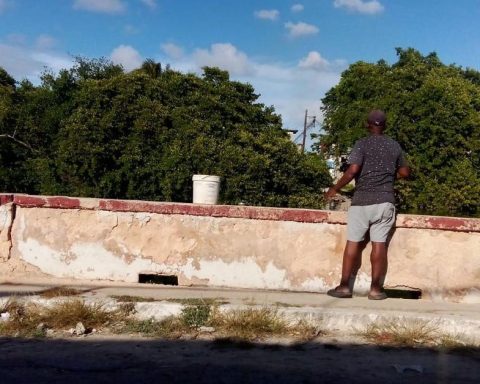The sentence of the Minister of the Interior, Carolina Tohá, resounded in the room of the Senate Security Commission: “President, the ministers present are going to retire. We believe that what we came to allege to this commission has been rejected outright.” The careful strategy elaborated by the Minister of Justice, Luis Cordero, to unify the extension of the statute of the use of force in the Code of Military Justice, had failed, an indication that was intended to calm the spirits in the government coalition, especially in the Broad Front, and those specialists who had warned that it could be a legislation that would promote the “easy trigger”.
It was not necessary for the ministers to stop and leave the room to discuss the strategy or pass a piece of paper to consult it, the three understood that it was the only thing left to do: stop and leave. A few glances between the ministers and brief comments in the ear were enough.
From early on there were indications that the president of the Security Commission, Felipe Kast (Evópoli), wanted to score a political point by showing the right as pro-security, and the government as hindering that agenda.
In the Executive they point out that the maximum demonstration that the right wants to make a political point with this procedure is that, late on Monday, the aforementioned commission approved with the three votes of the right to limit “the crime of illegitimate coercion”, together with approving “the exemption of criminal responsibility of the command.” The ruling party hopes to use these two laws to argue the right wing’s lack of concern for the issue of human rights, something on which the government and the ruling party have said they are not willing to compromise.
The president of the Security Commission, meanwhile, explained the departure of the Executive at the end of the afternoon, stating: “We, in the legitimate right of our legislative powers, voted to protect the Carabineros, so that they never again feel that when they use their weapon of fire are persecuted, are charged, discharged. The Government, instead of accompanying them, has risen from the table and has withdrawn from the legislative process,” said Kast.
Lamb Strategy
In La Moneda they point out that Minister Carolina Tohá, together with the deputy head of the General Secretariat of the Presidency, Macarena Lobos, and the Minister of Justice, Luis Cordero, were not prepared for the rejection of the three right-wing parliamentarians without listening to arguments. . “Even the editorial of The Mercury of Monday morning endorsed the strategy of unifying the application of the use of force statute in the Code of Military Justice. Over the weekend, all the specialists in the press insisted on these points and, even, two of the three specialists that Felipe Kast himself summoned on Saturday to expose the Senate, supported what was in these indications, “says a government lawyer who was at the committee meeting.
On Saturday, former Senator Felipe Harboe, Supreme Court Minister Jean Pierre Matus and academic Enrique Aldunate had appeared in the Senate. The first two supported the orientation that the Executive had raised and that was seen in La Moneda as a good sign for Monday.
The strategy elaborated by Minister Cordero indicated that the application of the statute of the use of force in the Code of Military Justice, which regulates three hypotheses of use of firearms, had to be unified: case of legitimate defense and protection of third parties; the flight case; and the case of breach of an order.
After leaving the Security Commission, the ministers went to La Moneda, where it was decided to insist with the indications in the Chamber. For its part, late last night, the Presidency sent the President’s agenda to the press for this Tuesday: “President of the Republic, Gabriel Boric Font, together with the Minister of the Interior, Carolina Tohá, lead the signing ceremony of the Commitment Transversal for Security together with regional and community authorities from all over the country”.
















